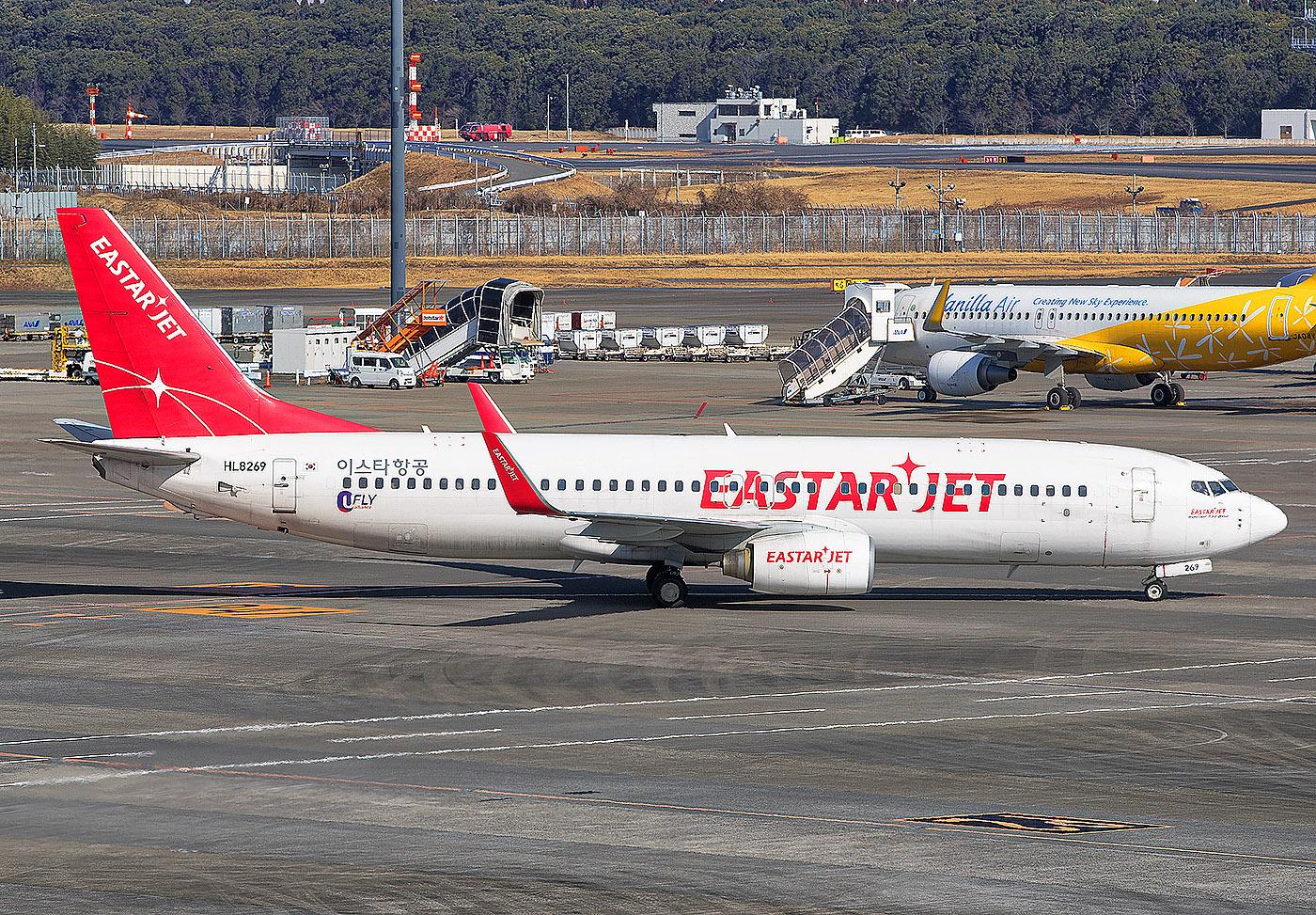
The COVID-19 crisis has interrupted an important phase of mergers and acquisitions in the South Korean airline industry, leaving the future of at least two of the country’s carriers under serious threat.
The pandemic arrived at a particularly sensitive time for South Korea’s airline sector. Tentative agreements had been signed for the takeovers of Asiana Airlines and Eastar Jet, but the industry was rocked by the novel coronavirus outbreak before the purchases could close. Now one of the acquisitions has been canceled, and the other remains in limbo as last-ditch talks are underway to attempt to save it.
Eastar Jet was primed to be taken over by fellow South Korean LCC Jeju Air, but Jeju backed out of the agreement on July 23. This posed a serious headache for Eastar, which appeared to have limited survival options. However, two private equity groups have since expressed interest in investing, according to Eastar executives cited by the Yonhap News Agency.
Any new rescue plan for Eastar faces challenging hurdles. Eastar carries substantial debt and owes wages to its staff. The airline’s operations have been suspended since March, and its air operator’s certificate has now lapsed, meaning it would have to be renewed.
Jeju signed an MOU to buy a controlling 51.17% stake in Eastar in December 2019. At that time, Jeju saw the potential of adding scale to its operation through acquisition. Jeju is the largest of South Korea’s LCCs, and Eastar was the fifth-largest before the pandemic struck.
As well as putting Jeju in an even more dominant position, the Eastar acquisition would have been an important first step towards consolidation of an increasingly crowded LCC market in South Korea. In addition to six incumbents, two more LCCs were approved by the government last year.
However, the new market dynamics created by the COVID-19 crisis changed the equation for Jeju. Suddenly, expansion does not look so attractive, and taking on more debt even less so.
This is also a factor in an even larger South Korean airline acquisition deal that is at risk of falling through. Hyundai Development Co. (HDC) is leading a consortium that won the right to take over Asiana, although there is now a strong possibility that HDC will pull out.
An initial agreement was reached in December 2019 after HDC was selected as the successful bidder for Asiana with the support of Mirae Asset Daewoo. Asiana had been struggling financially, and its largest shareholder Kumho Industrial had to sell its 31% stake to resolve its own liquidity issues.
The worsening state of the airline industry has complicated the closing of the deal. HDC and Kumho have been in dispute over whether each side has been meeting their obligations under the initial agreement. The prospective purchasers appear to have less appetite for the deal now—at least in its current form.
HDC wants to conduct a fresh 12-week due diligence assessment of Asiana and has said it wants to renegotiate the terms. This has caused disagreements with Kumho and Asiana’s largest creditors, resulting in the deadline for closing the deal being postponed more than once.
Kumho and the main creditor—state-backed Korea Development Bank—have grown frustrated at the delay. Last week the matter came to a head when they issued an ultimatum to the HDC consortium to close the sale. At that point the deal seemed close to being canceled. However, the two sides have resumed negotiations in a last-ditch effort to see if they can reach consensus.
The collapse of the takeover would leave limited options for Asiana and its creditors to come up with a new plan to secure the airline’s future. There is a smaller pool of investors now with the ability or appetite to pour money into airlines. Failure to secure a deal would also present a dilemma for the government, which wants Asiana to survive to keep two major full-service carriers in the South Korea market.





